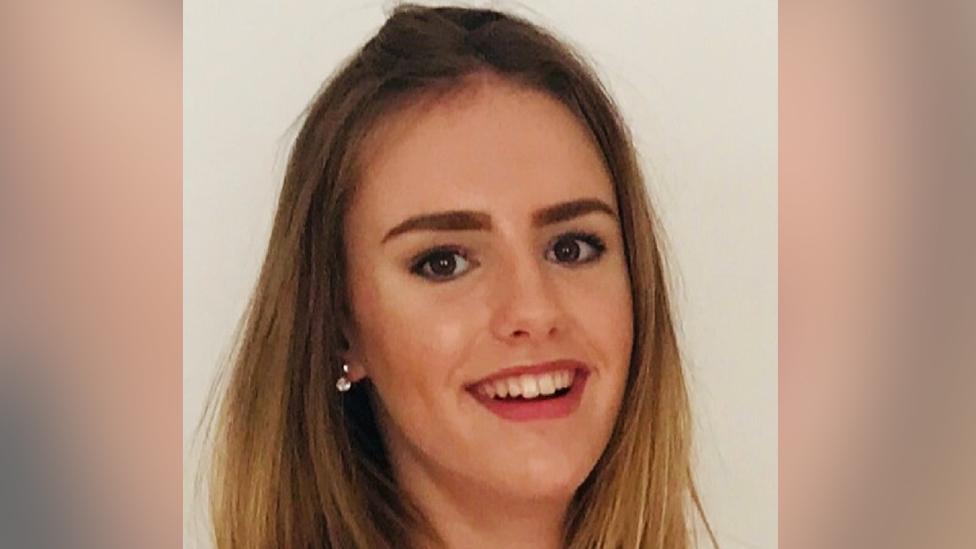Annabel Wright: Acne drug link to Ripon teen's suicide ruled out
- Published
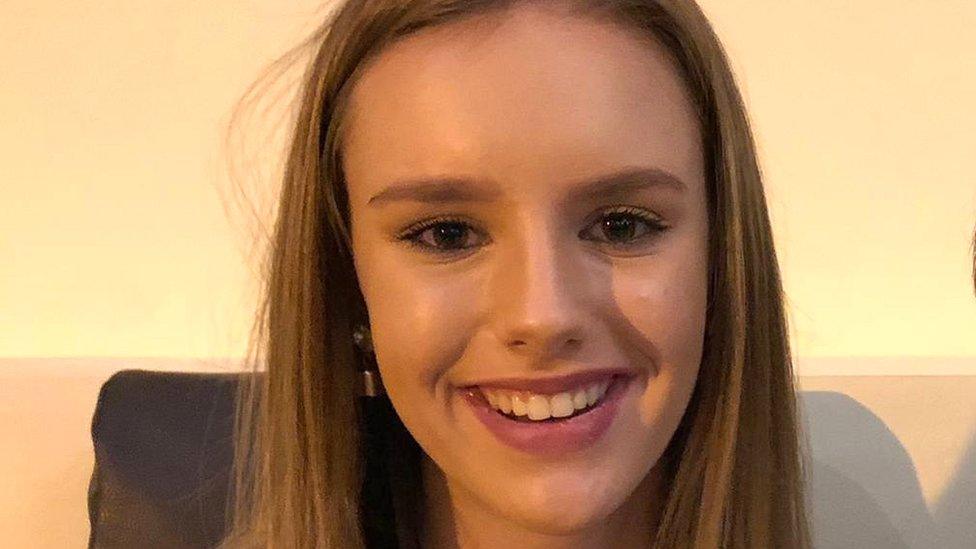
Annabel Wright was found dead at her home near Ripon in May 2019
A coroner has ruled out any direct link between a girl's suicide and the drug she was prescribed to treat her acne.
Annabel Wright, 15, was found dead at her home near Ripon in May 2019.
Her family told an inquest they believed the isotretinoin medication, also known as Roaccutane, was linked to her death and an opportunity to prevent further cases had been missed.
However, Coroner Jonathan Leach said there was "no evidence this was caused or contributed to by isotretinoin".
He recorded a conclusion of suicide after hearing that the teenager had sent messages to friends on Snapchat saying she was in a low mood and "life is not worth living".
In a statement, Annabel's family said evidence at the inquest showed "our normal, happy, well-adjusted child took her own life suddenly, without warning and without any mitigating circumstances other than she was taking a drug which can cause suicide."

Annabel's parents told the inquest they believed her death was linked to the drug
They said she was "let down in life" by doctors and "let down in death by the authorities' steadfast refusal to recognise the role Isotretinoin played in her death".
"We are where we are today because the authorities have not listened to parents who have lost their children to this drug in previous cases," they said.
"Whatever the conclusion of this inquest was it was never going to change anything for us."
The statement added that "in failing" to make a report to prevent future deaths, the coroner had "missed a valuable opportunity to try and prevent what happened to Annabel happening to another child, another family."
The inquest in Northallerton, North Yorkshire, heard isotretinoin, external had been recommended as suitable treatment for Annabel after she was referred by her GP to Harrogate District Hospital in late 2018.
Mr Leach heard evidence from two expert dermatologists, Professor Anthony Chu and Dr Sarah Wakelin, on whether it may have contributed to Annabel's death.
Returning his conclusion, he said Prof Chu "lacked objectivity" and his assertion that Annabel's death was linked to the drug "was clearly outside his level of expertise".
He said Dr Wakelin, on the other hand, was "measured" and "prepared to say when a question was outside her area of expertise".
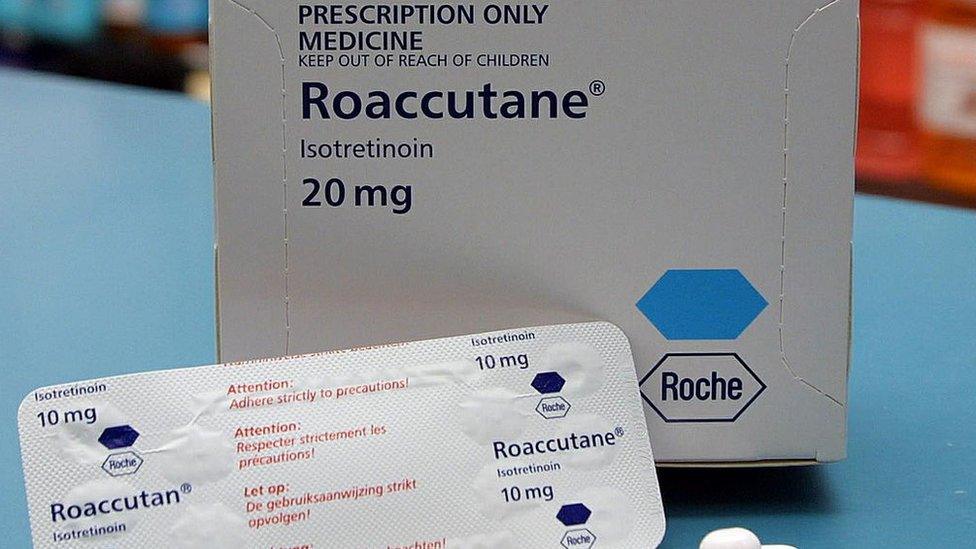
The inquest heard Isotretinoin, also known as Roaccutane, has been available for use in the UK since the early 1980s
Recording his findings, he said: "There is no evidence the balance of Annabel's mind was disturbed and the fact she took her own life does not in itself mean the balance of her mind was disturbed and, if it was, there is no evidence that this was caused or contributed to by isotretinoin.
"The only evidence was from Annabel's parents, who could not conceive of any other reason why she would take her own life, and that of Prof Chu, and that part of his evidence was outside of his area of expertise."
Harrogate and District NHS Foundation Trust, said: "We wish to offer our deepest sympathies to the family and friends of Annabel Wright. Following Annabel's tragic death, the trust commenced an investigation and our findings were shared with Annabel's family and HM Coroner."
Roche, which manufactures Roaccutane, said: "We take the safety of all our medicines very seriously. Millions of patients worldwide have taken Roaccutane, but like most medications, it can have side effects.
"That is why we recommend it is prescribed very carefully, with particular consideration regarding any previous history of depression.
"It is vital that patients are fully informed as to what to expect when they take it and that they are monitored closely to ensure they get the ongoing care they need."

Follow BBC Yorkshire on Facebook, external, Twitter, external and Instagram, external. Send your story ideas to yorkslincs.news@bbc.co.uk or send video here.
- Published24 September 2021
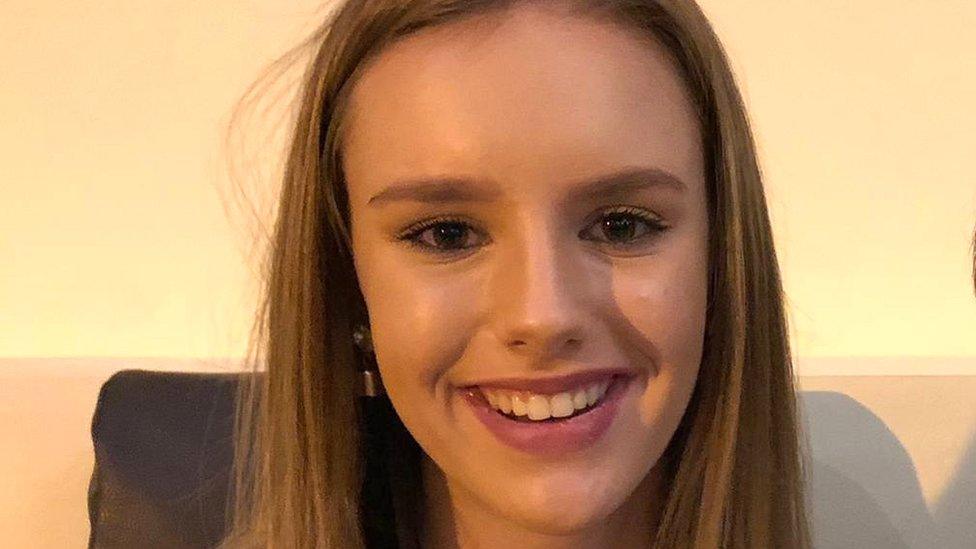
- Published23 September 2021
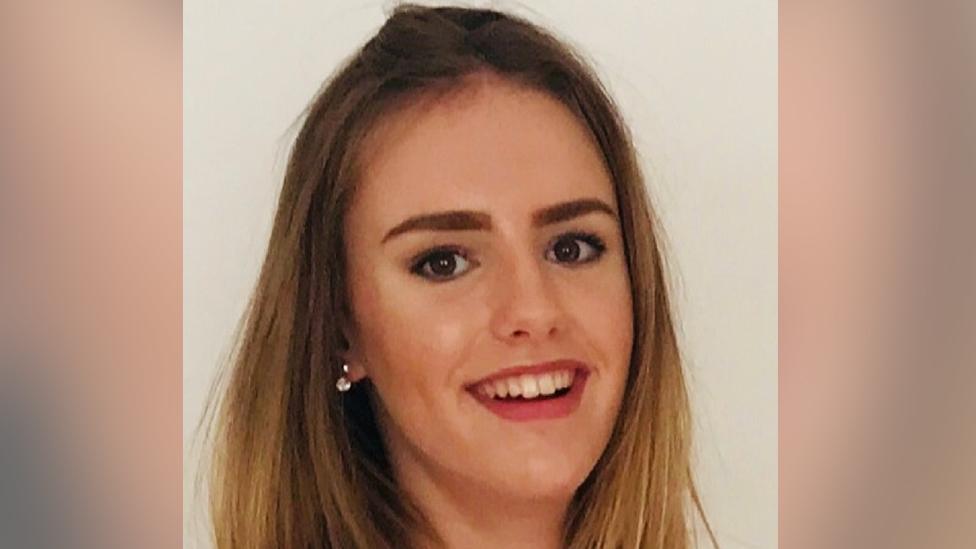
- Published22 September 2021
